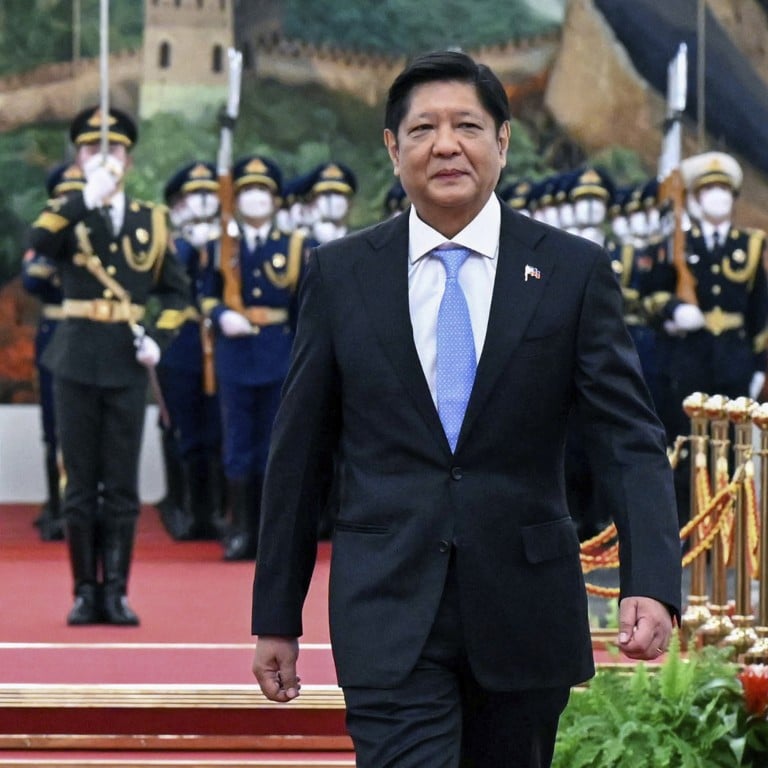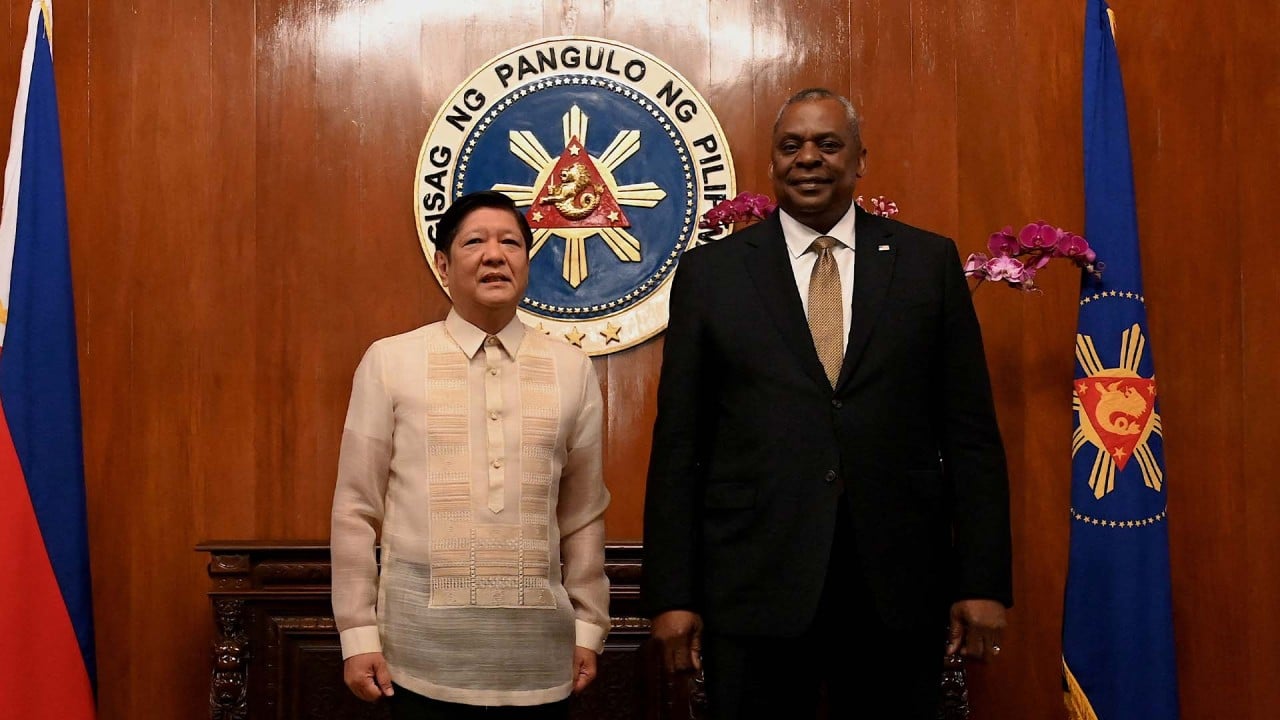
China slams Manila again over closer US military ties, warns against ‘drawing wolves into the house’
- Second statement in three days from embassy in Manila includes stern warning to government of President Ferdinand Marcos Jnr
- US military cooperation just a ploy to ‘pull the Philippines against China’ and tie it to the ‘chariot of geopolitical strife’, embassy says
The Philippines must stop veering into “the evil path of drawing wolves into the house”, the Chinese embassy in Manila said on Sunday, issuing a stern warning to the government of President Ferdinand Marcos Jnr in what was its second statement on the issue in three days.
The latest embassy statement came after the US ambassador to Manila, MaryKay Carlson, said Marcos Jnr’s decision to open up four additional sites to US forces under the Enhanced Defence Cooperation Agreement (EDCA) would help to develop the local economy.
“In order to maintain its own hegemony, the US has been escalating its military cooperation with the Philippines and increasing its military bases and deployments in the country out of geopolitical self-interest and a Cold War mentality,” the Chinese statement said.
“[Such military cooperation is] in fact a way to pull the Philippines against China and tie the country to the chariot of geopolitical strife, seriously jeopardising Philippine national interests and regional peace and stability.”
The statement also accused the US of “stirring up trouble in the South China Sea” with its muscle-flexing maritime patrols, which it said intended to “interfere with and undermine China-Philippines efforts to maintain peace and stability” in the disputed waters.
Manila, US eye joint South China Sea patrols to counter Beijing’s ‘aggression’
While the first statement on Friday put the blame almost squarely on the US, the latest one seemed to also take aim at the Marcos Jnr government.
“Now that China and the Philippines, among other countries in the region, are at a critical juncture of post-Covid recovery, we should keep to the right track of maintaining good-neighbourliness and attaining mutual benefit rather than getting distracted by forces who are fanning the flames and driving a wedge between us,” it said.
“We should abandon the perverse path of sowing dissension and causing trouble, not to mention the evil path of drawing wolves into the house and opening the door for thieves.”
The first statement – issued after US under secretary of state Victoria Nuland visited the Philippines last week – had also slammed the two countries’ military cooperation as “endangering regional peace and stability”.
China claims sovereignty over almost the entire South China Sea, where the Philippines Malaysia, Vietnam, Brunei and Taiwan have competing claims.
‘Leave immediately’: China ship warns Philippine jet flying over Spratlys
In a departure from his Beijing-friendly predecessor Rodrigo Duterte, Marcos Jnr last month called the maritime dispute with China “the most complicated geopolitical situation in the world” and said the Philippine military would focus on external defence.
China on Friday reiterated its sovereignty claims over the Spratlys, known in Chinese as the Nansha Islands, and its adjacent waters.
“Therefore, it is reasonable and legal for Chinese ships to carry out normal activities in waters under China’s jurisdiction,” foreign ministry spokeswoman Mao Ning said.



